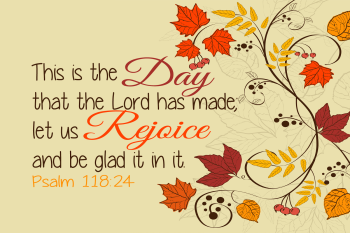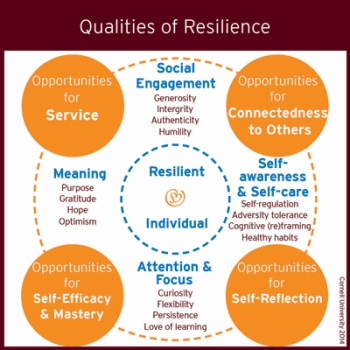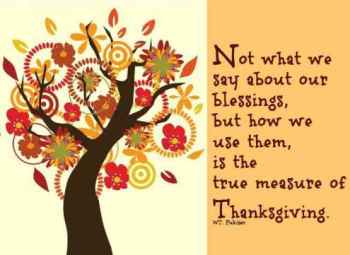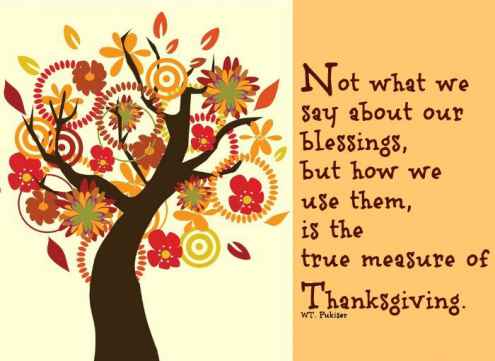
It’s November, the month of Thanksgiving, and we will likely be hearing a lot about being thankful and having a spirit or sense of gratitude. I love reading the different gratitude challenges posted on social media and blogs during November. It’s a great reminder to take note of the many things you have to be grateful for. It can be easy to miss the good and positive things and experiences that we have in our life until we actually take time to sit down and think about it.
I’m learning that there is a strong connection between gratitude and resiliency.
Gratitude: a feeling of appreciation or thanks; b) the state of being thankful
Resilient: tending to recover from or adjust easily to misfortune or change; b) able to return to an original shape after being pulled, stretched; pressed, bent, etc.

Managing the struggles and challenges that accompany having ADHD make us resilient, but it doesn’t necessarily lead to us being grateful. Here’s what I’m learning about being simultaneously grateful and resilient:
Mistakes: When I make a mistake, forgive myself. Don’t let bitterness or anger get a hold of my emotions. If I stop and reflect on why I made the mistake and how I can avoid repeating this mistake in the future, I develop a stronger character. I take the time to thank God for bringing my mistakes to my attention and I give thanks for the opportunity to carry on.
Sense of Humour: I have no problems laughing at myself. This was not something that came naturally, but over time I learned that if you have adult ADHD you need to be able to laugh at yourself. I used to become easily angry with myself for doing things that seemed “stupid”, but now I’ve accepted that certain odd behaviour is part of the disorder. Yes, I am that person with ADHD who has placed dinner in the microwave, forgotten about it, only to discover the plate of food two days later when I went to heat up another dish.
I am that woman with ADHD who has had to leave the house with only half of her curly hair straightened because my morning time management skills were well off. I eventually learned that the half curly, half straight look is not likely to be in style at any time and it’s better to leave the early morning hair straitening sessions for weekend.
I’ve known other adults with ADHD who rarely wear a matching pair of socks. They could easily let that get to them, but instead, they’ve learned to accept it. Who cares if one sock is white and the other is black? If it doesn’t bother you, let it bother the others; it’s their problem not yours.
Self-knowledge/Self-acceptance: Once an adult accepts that they have ADHD, life changes for the positive. We don’t get to choose our disorders and disabilities, but we do get to choose how we perceive affects our life. I remember the years when I had not yet been diagnosed with ADHD. Because I didn’t know that I had ADHD I spent a lot of time wondering “What is wrong with me?”. I couldn’t understand why I was so forgetful, had poor time management skills, was always fidgeting, had a short attention span for certain activities, and was always moving from one project to the other. Finally being diagnosed allowed me to develop an understanding of what ADHD is, the symptoms, and how to manage them as best as I could.

I am thankful that we live in a country where we can be diagnosed and provided with much needed help and assistance in order to live a more productive life. For me, resiliency means silencing the internal voice that sometimes still asks the question, “What is wrong with me?”; the difference is that I know what’s “wrong” with me, there is nothing “wrong” with me or anyone else with ADHD, we have a disorder and we diligently work to increase our strengths and decrease our weaknesses.
I’m thankful those who have forgive me for my past habits of being chronically late; disorganized, frazzled with anxiety, forgetful, being the loudest in the room, and sometimes blurting out things that are cringe worthy. Resiliency means looking in the mirror and seeing an adult with ADHD and knowing that we are more than a diagnosis.
Gratitude is being thankful for our quirks; resiliency is not hiding them, but instead living with them and saying, “Hey, this is part of who I am!”
We all have a variety of things to be thankful for and different ways resiliency is experienced in our lives. I encourage you to take some time during this month of thanksgiving to take an inventory of the things in life you are thankful for and how having ADHD has helped to make you a more resilient person.

